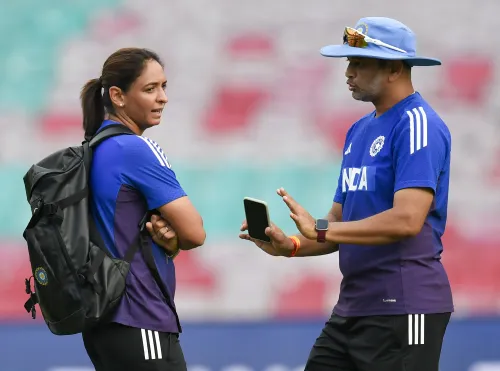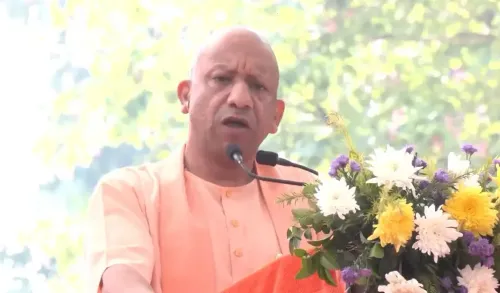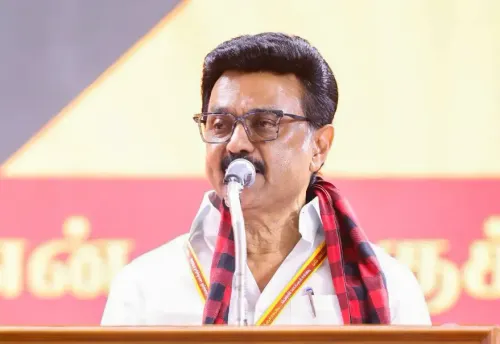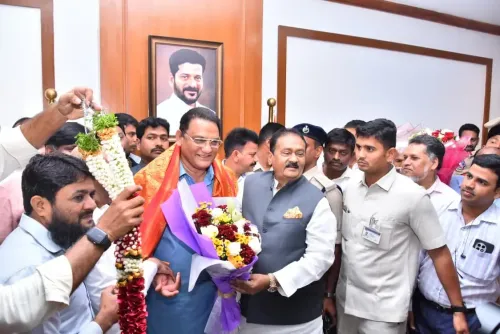Why is Karnataka Governor Seeking President's Assent for the Hindu Temple Bill?
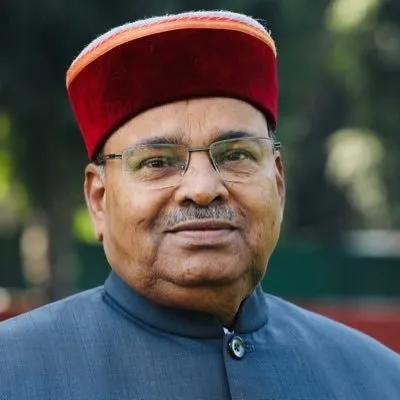
Synopsis
Key Takeaways
- The Karnataka Hindu Temple Bill aims to redirect temple revenue to a communal fund.
- Governor Thaawarchand Gehlot is seeking President's assent amid legal concerns.
- The Supreme Court's review could influence the Bill's future.
- The legislation has faced protests from the BJP.
- Legal provisions under Articles 14 and 26 are key issues in the debate.
Bengaluru, May 24 (NationPress) Karnataka Governor Thaawarchand Gehlot has requested the President's approval for the Karnataka Hindu Religious Institutions and Charitable Endowments (Amendment) Bill, 2024, commonly referred to as the Hindu Temple Bill. The Governor expressed his doubts regarding the clarifications provided by the Congress-led government and noted that the issue is currently under review by the Supreme Court.
The bill was passed amidst protests from the BJP and aims to allocate a larger portion of revenue generated from affluent Hindu temples throughout the state to a communal fund.
The Governor stated in his order: "When the state's Legal Department has issued a legal opinion, it is beyond my purview to assess such a point. Since the matter is before the Supreme Court for legal examination under Article 14 and 26 of the Constitution of India, it is natural to wait for the final ruling of the Supreme Court. Therefore, it would be inappropriate for me to assent to the Bill at this time."
He further remarked: "In this context, I feel it is prudent to reserve the matter for the esteemed consideration of the President of India to prevent further constitutional complications, given that it involves constitutional limitations and legal examination.”
“Accordingly, I hereby invoke my powers under Articles 200 and 201 of the Constitution of India, reserving the Karnataka Hindu Religious Institutions and Charitable Endowments (Amendment) Bill, 2024, for the consideration and assent of the President of India,” the Governor stated.
Regarding the bill, the Governor noted: "The Bill has been approved by both Houses of the State Legislature in the third session of the 16th Assembly and was presented for my assent on March 6, 2024. Clarifications have been requested from the State Government concerning the proposed amendment."
“The state government submitted the proposed amendment Bill along with clarifications for my assent on May 16,” he added.
This Bill aims to modify various sections of the Karnataka Hindu Religious Institutions and Charitable Endowments (Amendment) Bill, 2024. The Governor has received this bill from the Karnataka government for assent under Article 200 of the Constitution of India.
The Governor indicated that he has thoroughly reviewed the proposed amendment and the clarifications provided.
“I have my reservations concerning the clarifications and proposed amendments,” he remarked.
The state government reported that the Hindu Religious Institutions and Charitable Endowment Act, 1997 was challenged in a writ petition, which was dismissed, and another writ appeal was filed before the Division Bench.
The Division Bench of the High Court on September 8, 2006, concluded that the enactment violates Article 14, 25, and 26 of the Constitution of India, the Governor emphasized.
“As noted, the High Court meticulously discussed section 17 of the Act, which pertains to the Creation of a Common Pool Fund, and opined that the 'gross annual income for the percentage appears to be arbitrary,' the Governor stated.
The state government has also proposed the insertion of a new section 69E to establish District and State Level High Power Committees, despite the High Court's negative opinion regarding advisory committees in its judgment, he noted.
“As the Constitutional Head of the State, I believe that even though the Supreme Court has stayed the Division Bench Order and the issue remains under adjudication on its merits before the Supreme Court, it is not appropriate or feasible to approve the proposed amendments, especially since the entire act has already been invalidated by the High Court. This remains unresolved until the Supreme Court reaches a conclusive decision regarding the legal scrutiny under Article 14 and 26 of the Constitution of India,” the Governor concluded.

